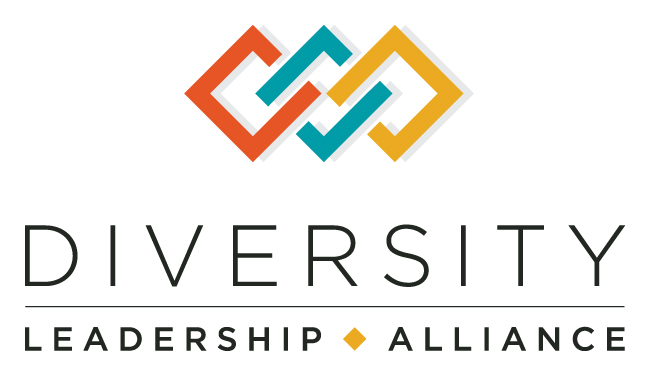The trajectory of our future societies, organizations, and communities is fundamentally shaped by the capabilities and values of the next generation of leaders. Equipping young individuals with the skills, confidence, and vision to lead effectively is not merely an aspiration but an absolute necessity. Parallel to this, ensuring that all forms of leadership development are inherently inclusive is paramount, as diverse voices and perspectives are critical for navigating complex global challenges and fostering truly equitable environments. This blog delves into the transformative power of youth leadership development, the comprehensive nature of effective leadership development programs for all ages, and the indispensable role of inclusive leadership training in shaping a more just, innovative, and prosperous future.
The Critical Importance of Nurturing Youth Leadership Potential
Investing in youth leadership development is, at its core, an investment in sustainable societal progress. Young people often possess an innate ability to bring fresh perspectives, innovative ideas, and a strong sense of purpose to the table. Nurturing their leadership potential early on provides a multitude of benefits, helping them to:
Developing Foundational Life and Soft Skills
Beyond traditional academic learning, robust youth leadership programs impart vital skills such as critical thinking, complex problem-solving, effective communication, collaborative teamwork, adaptable resilience, and ethical decision-making. These are transferable skills that empower individuals in all facets of life.
Fostering Self-Confidence and Acute Self-Awareness
By actively participating in and taking on leadership roles, even within smaller community or school projects, young individuals build crucial confidence in their capabilities. Simultaneously, they gain a deeper understanding of their personal strengths, preferred leadership styles, and areas requiring further growth.
Instilling a Profound Sense of Responsibility and Civic Engagement
Many youth leadership initiatives are intrinsically linked to community service, social justice advocacy, and ethical conduct. This exposure encourages young people to become actively engaged, responsible, and empathetic citizens who understand their role in contributing to the common good.
Preparing for Future Challenges in a Dynamic World
In an increasingly interconnected, volatile, uncertain, complex, and ambiguous (VUCA) world, early exposure to leadership principles helps youth develop the agility, foresight, and innovative mindset required to adapt, lead through periods of disruption, and thrive amidst uncertainty.
Bridging Generational Divides and Fostering Innovation
Actively empowering youth and valuing their input ensures that their unique and contemporary perspectives are meaningfully integrated into decision-making processes. This cross-generational collaboration often leads to more holistic, relevant, and future-proof solutions.

Ultimately, effective youth leadership development initiatives transcend simply appointing “leaders”; they focus on building foundational capabilities and instilling a strong set of values that will serve individuals throughout their entire lives and careers, preparing them to be impactful contributors.
Designing Comprehensive Leadership Development Programs: A Holistic Imperative
While youth programs lay crucial groundwork, comprehensive leadership development programs are equally vital for professionals at every stage of their careers, from emerging managers to seasoned executives. These programs are meticulously designed to systematically enhance an individual’s capacity to lead effectively, adapt proactively to change, and inspire and empower others to achieve collective goals. A truly holistic and impactful program typically integrates several key components:
Targeted Skill-Based Training
This focuses on equipping leaders with practical, actionable skills such as strategic planning, astute financial acumen, efficient project management, compelling public speaking, effective negotiation, and constructive conflict resolution.
Enhancement of Emotional Intelligence (EQ)
Recognizing that truly effective leadership relies heavily on the ability to understand and skillfully manage one’s own emotions, accurately perceive the emotions of others, and leverage this awareness to build strong, empathetic relationships.
Structured Mentorship and Professional Coaching
Providing invaluable personalized guidance, constructive feedback, and sustained support from experienced leaders who can offer real-world insights, share their own leadership journeys, and help navigate complex challenges.
Immersive Experiential Learning Opportunities
Creating controlled environments where participants can apply newly acquired skills in realistic scenarios. This might include leading a complex team project, participating in high-fidelity simulations, or undertaking a challenging, stretch assignment.
Systematic Feedback Mechanisms and Self-Assessment
Implementing structured processes for participants to receive regular, actionable feedback on their performance from multiple sources (peers, subordinates, superiors), coupled with opportunities for deep self-reflection, thereby fostering continuous improvement.
Strategic Thinking and Compelling Vision Setting
Developing the cognitive capacity for leaders to think critically about the overarching organizational direction, anticipate future trends and disruptions, and articulate a clear, compelling, and inspiring vision that galvanizes collective effort.
Adaptive Change Management Capabilities
Equipping leaders with the essential tools, frameworks, and resilient strategies required to effectively guide their teams and entire organizations through periods of significant transition, disruption, and transformation.

The most effective leadership development programs are rarely “one-size-fits-all.” Instead, they are meticulously tailored to the specific needs of individuals and organizations, often incorporating a dynamic blend of traditional classroom instruction, flexible online modules, peer learning, and hands-on practical application.
The Indispensable Role of Inclusive Leadership Training
In today’s increasingly diverse and interconnected global landscape, traditional, often hierarchical, leadership models are demonstrably insufficient. Inclusive leadership is no longer merely a desirable trait or a “nice-to-have”; it is a fundamental requirement for sustained success and organizational resilience. Inclusive leadership training focuses on developing leaders who possess the competencies to:
Recognize and Proactively Mitigate Unconscious Bias
Gaining a deep understanding of how pervasive unconscious biases can subtly yet significantly affect critical decision-making, recruitment and hiring processes, talent development, promotion pathways, and overall team dynamics.
Champion and Leverage Diversity
Actively seeking out, valuing, and celebrating a wide array of perspectives, backgrounds, experiences, and identities within their teams and across the broader organization. This involves moving beyond mere representation to true psychological inclusion.
Foster a Culture of Psychological Safety
Creating environments where all team members feel genuinely safe, respected, and empowered to express their ideas, voice concerns, ask probing questions, challenge norms respectfully, and even make mistakes without fear of judgment, retribution, or negative consequences.
Advance Equitable Practices
Ensuring fair treatment, equal opportunities, and unbiased access to resources and advancement for all individuals, while diligently identifying and dismantling systemic barriers or historical disadvantages that may inadvertently exist.
Build a Profound Sense of Belonging
Actively cultivating an atmosphere where every individual feels truly respected, genuinely valued for their unique contributions, authentically connected to their team, and integral to the mission of their organization.
Communicate with Intentional Inclusivity
Developing agile and empathetic communication styles that are effective across diverse audiences, ensuring that messages are clearly understood, culturally resonant, and genuinely inclusive for everyone.
Lead Difficult and Courageous Conversations
Cultivating the courage, empathy, and refined communication skills to address sensitive and often challenging topics related to diversity, equity, and inclusion in a constructive, empathetic, and ultimately productive manner.

Inclusive leadership is fundamentally about maximizing the full potential of every individual, unlocking unprecedented levels of innovation, leading to superior decision-making, significantly higher employee engagement, reduced turnover, and ultimately, stronger, more resilient organizational performance. It is the cornerstone of a truly equitable, sustainable, and thriving future.
The Synergy of Impact: Connecting Youth, Development, and Inclusivity
The most impactful and forward-thinking leadership strategies explicitly recognize and harness the powerful interconnectedness of these three critical pillars.
Early Integration of Inclusive Principles
Introducing the core tenets of diversity, equity, and inclusion (DEI) within youth leadership development programs ensures that the next generation of leaders inherently understands, internalizes, and proactively champions these essential values from a formative age.
Seamless Programmatic Integration Across All Levels
Purposefully incorporating comprehensive inclusive leadership modules into all levels of leadership development programs, from foundational courses for new managers to advanced executive training, ensures that experienced leaders are also equipped with the necessary skills to lead diverse teams effectively and ethically.
Commitment to Continuous Learning and Adaptation
The landscape of diversity and inclusion is dynamic and continuously evolving. Therefore, ongoing training, regular workshops, and continuous professional development are absolutely crucial for leaders to stay abreast of emerging best practices, adapt their approaches, and remain effective in fostering truly inclusive environments.

Conclusion
As we look ahead to the future, the imperative is clear: cultivating capable, compassionate, and inclusive leaders must begin early and evolve continuously. Youth leadership development lays a critical foundation, helping young individuals build essential life skills, civic responsibility, and a sense of purpose.
The most successful organizations and communities will be those that intentionally invest in the next generation of changemakers, integrate inclusive practices across every leadership tier, and commit to lifelong learning and adaptability. By embracing this interconnected, holistic approach to leadership development, we unlock unprecedented potential—for individuals, for organizations, and for a world in urgent need of ethical, agile, and inclusive leadership.
Now is not the time for incremental progress. It is the time for bold, forward-thinking investment in the leaders of tomorrow. Contact Diversity Leadership Alliance today!

FAQs
1. Why is youth leadership development considered essential in today’s world?
Youth leadership development equips the next generation with critical thinking, communication, and ethical decision-making skills. It prepares them to navigate complexity, drive innovation, and become proactive changemakers in both local and global contexts.
2. What makes an inclusive leadership training program effective?
Effective inclusive leadership programs address unconscious bias, promote psychological safety, teach equitable practices, and emphasize empathetic communication. These programs help leaders create environments where all voices are heard, valued, and empowered to contribute.
3. How can schools or organizations begin implementing youth leadership programs?
They can start by integrating experiential learning, mentorship, community service, and DEI (diversity, equity, inclusion) principles into their curricula. Partnering with community organizations and involving youth in real-world projects also enhances effectiveness.
4. What are the long-term benefits of inclusive leadership training for organizations?
Organizations that invest in inclusive leadership enjoy higher employee engagement, stronger innovation, improved decision-making, lower turnover, and enhanced brand reputation. It also leads to better adaptability and resilience in changing markets.
5. Can inclusive leadership development be customized for different industries or roles?
Absolutely. The most impactful programs are tailored to organizational context, industry challenges, and the specific leadership stage of participants. Customization ensures relevance and maximizes learning retention and application.


